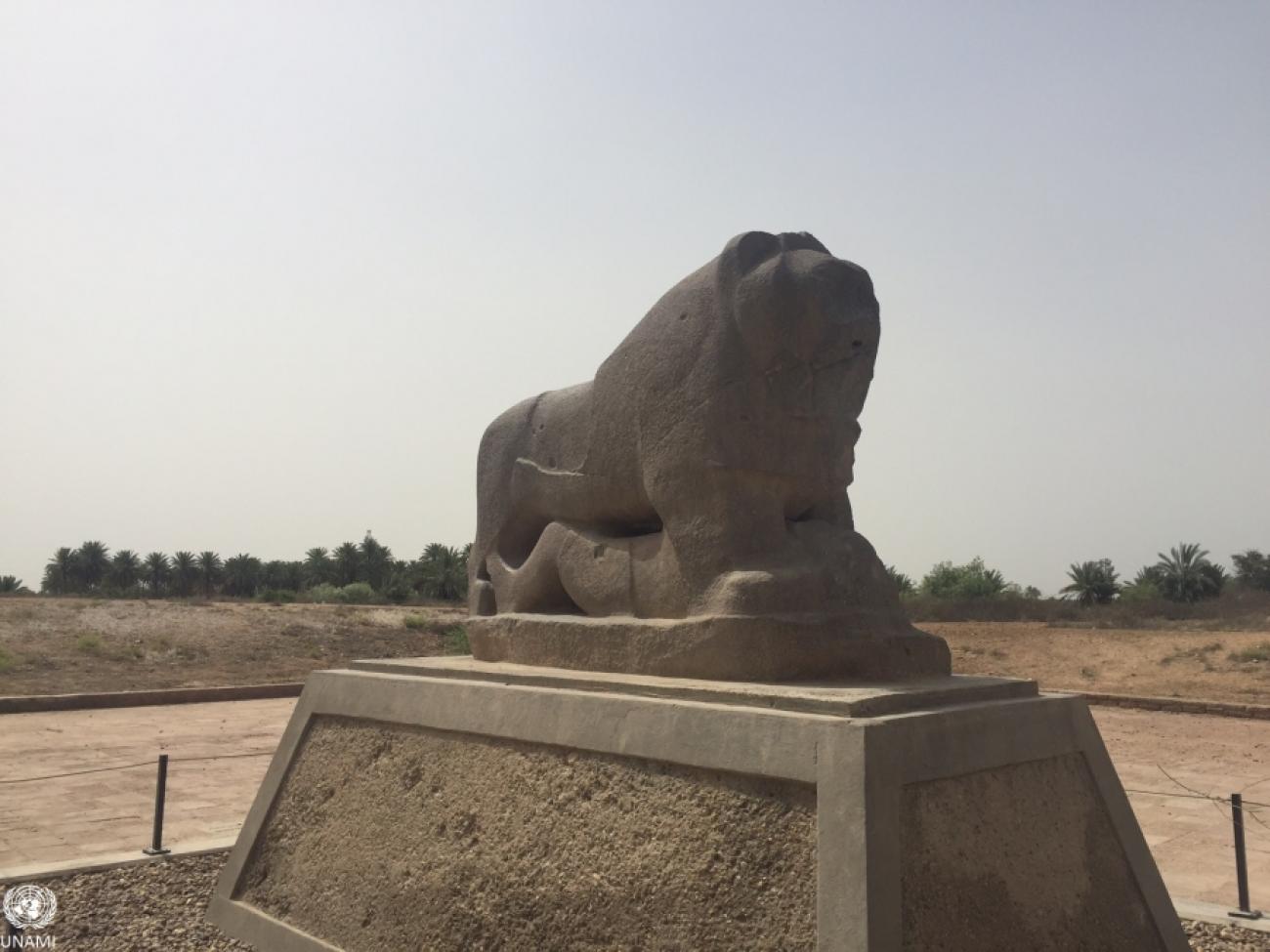A delegation from UNESCO and UNAMI recently visited the ancient Mesopotamian city that was best known for its mythical hanging gardens.
With the Iraqi authorities’ intention and efforts to present the nomination of Babylon as a UNESCO World Heritage site, a delegation from UNESCO and UNAMI recently visited the ancient Mesopotamian city that was best known for its mythical hanging gardens.
Located in Babel Governorate, about 80 kilometers south of the Iraqi capital of Baghdad, Babylon is revered for its unique archaeological sites. Its hanging gardens were one of the Seven Wonders of the Ancient World.
The United Nations delegation - comprised of Deputy Special Representative of the United Nations Secretary-General (DSRSG) for Iraq for Political and Electoral Affairs, Mr. György Busztin, and Director of the UNESCO Office for Iraq Ms. Louise Haxthausen, - was received by the President of the Tourism and Antiquities Committee of Babylon’s Provincial Council, as well as the Head and members of the Team of Babylon’s Future. Following an initial meeting during which the cultural heritage of Babylon was discussed, a media event focused on the ongoing preparation of the nomination file for having the site of Babylon inscribed on the UNESCO World Heritage List. The file is being prepared by a committee comprising members of the Ministry of Culture of Iraq and members of the Team of Babylon's Future.
DSRSG Busztin noted the importance of preserving Iraq’s rich cultural heritage, stressing that “heritage belongs to everyone and we must strive to preserve Iraq’s architectural wonders for the benefit of future generations”. He commended the strong partnership and collaboration that Iraqi institutions maintain with UNESCO and encouraged forging ahead to ensure inscription and protection for the ancient city of Babylon in the World Heritage List.
Legend has it that Babylonian King Nebuchadnezzar II who ruled between 605 and 562 BC built the hanging gardens for his wife because she missed the lush green hills and valleys of her homeland. In touring the sun-baked archaeological site of the ancient city, the UN delegation was mesmerized by the grand Ishtar Gate replica and the majestic statue of the Lion of Babylon. The delegation appreciated the historical narration and first-hand information on conservation needs and challenges as well as insight into the ongoing efforts to conserve and safeguard one of Iraq's most significant and renowned sites.
UNESCO’s Ms. Haxthausen welcomed on-going efforts to finalize a nomination file for Babylon. She highlighted the long-term commitment to cultural heritage conservation and management along international standards, that a World Heritage nomination represents. In this regard, she encouraged local stakeholders to continue working closely with national authorities, the Ministry of Culture in particular, as well as all relevant international partners, in particular the World Monuments Fund, in support of enhanced conservation and management at the site.


